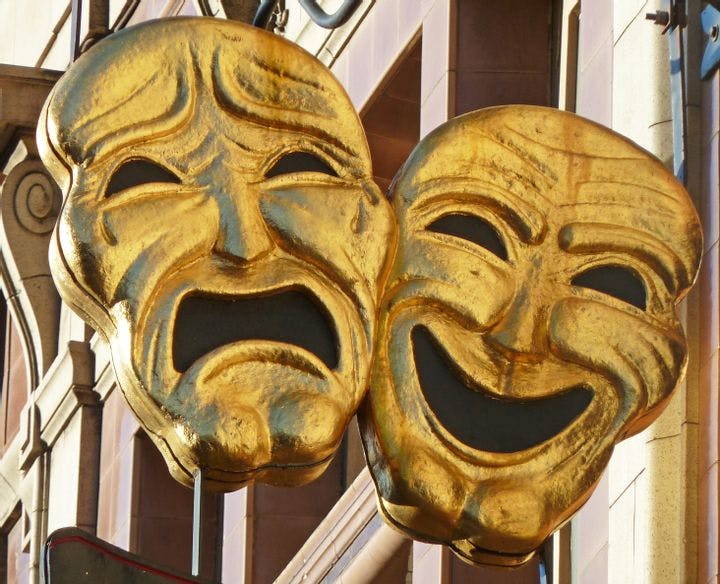Fall 2007
The Heavy Hand
– The Wilson Quarterly
Something seems to be missing from modern literature: a little levity.
Why are modern literary novels so earnest, so praiseworthy, so serious, and in the words of novelist Julian Gough, “so bloody dull”? Why is tragedy overvalued and comedy underrated? Such undeserved inequality, he says, goes back two millennia. Many writers believe that the ancient Greeks considered comedy to be the superior form of literary endeavor, but tragedy, instead, has reigned supreme for centuries as the defining spirit of great literature. The “Best Young American Novelists” list published by the noted literary magazine Granta this year featured 21 writers, all exploring death, sorrow, and uncertainty.
Comedy originally superseded tragedy, Gough writes, because it is a “god’s-eye view” of life: a “dirty, funny, violent, repetitive cartoon” of humanity’s flawed self. Tragedy was the mere human perspective: Existence was weighty, sad, and deadly. Comedy allowed humankind to stand on Mount Olympus and laugh at itself. The mismatch in reputation between the two dramatic forms was partly a result of simple survival. Only 11 of Aristophanes’ comedies are extant, vastly outnumbered by the tragic works of Aeschylus and Sophocles—and 18 by Euripides alone. Aristotle’s 350 BC treatise on tragedy is available for $8.76 online, while his presumed companion volume on comedy has disappeared.
When ancient literature was rediscovered in the Middle Ages, tragedy was at hand, and Europe was receptive. The ascendant Christian Church had been founded on tragedy—the “sadistic murder of a man by those he was trying to save, whose fatal flaw was that he was perfect in an imperfect world.” The Bible, the revealed word of God, “apple to Armageddon, does not contain a single joke,” Gough notes.
From Aphra Behn’s novel Oroonoko (1688) to the present day, the novel has been biased toward the serious and the weighty. Outlier comic writers such as Rabelais, Cervantes, and Voltaire stand out for their satiric view of authority, and all three spent time in jail. University creative writing departments teach the heavy touch. But “serious” writing is out of sync with popular culture, Gough writes. The language of the American literary novel has drifted away from “anything used by human beings anywhere on earth” and has lost its mass audience.
Forget Henry James, Gough argues. His advice to his peers: Steal a page from Bart Simpson and Tony Soprano.
* * *
The Source: "Divine Comedy" by Julian Gough, in Prospect, May 2007.
Photo courtesy of Flickr/Tim Green
